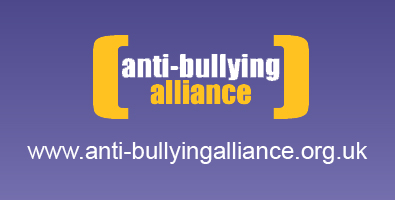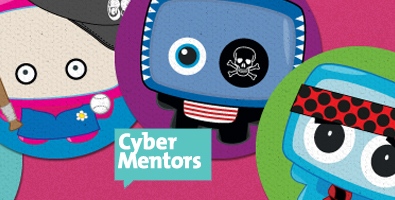Introduction To Anti-Bullying
At Longdendale High School, incidents of Bullying are rare.
“Most of the pupils that we spoke with said that they feel safe”
Ofsted 2020
We believe that:
- Our ethos and school culture is based on all the core values of ASPIRE.
- All students and staff have a right to feel happy, safe and included.
- Students and staff have a right to work in an environment without harassment, intimidation or fear.
- All of the school community should demonstrate respect to each other and avoid using offensive and discriminatory language.
- Bullying behaviour harms people and their learning; it is unacceptable at Longdendale High School.
- It is our duty to support those who are bullied.
- We should offer support to the families of those that are bullied.
- To allow leaders to deal with bullying effectively we should provide professional development opportunities to school staff to support those that are bullied.
- Those who bully, will be supported to reflect upon their poor behaviour choices and how they might repair the damage they have caused.
Definition of bullying
Bullying is repeated negative behaviour that is intended to make others feel upset, uncomfortable or unsafe.
Verbal bullying is the repeated negative use of speech, sign language, or verbal gestures to intentionally hurt others e.g. using hurtful words, discriminatory or offensive language, swear words.
Indirect bullying is the repeated negative use of actions, which are neither physical nor verbal, to intentionally hurt others e.g. spreading rumours, purposefully excluding another person, damaging or stealing someone’s property, and cyberbullying.
Physical bullying is the repeated negative use of body contact to intentionally hurt others e.g. kicking, punching, slapping, inappropriate touching, and spitting.
Cyberbullying is the repeated negative use of technology to intentionally hurt others e.g. Posting unwanted pictures or messages, accessing another person’s account without permission, creating fake accounts to impersonate or harass someone, and sharing other people’s private information online.
Students
Taking a stand and reporting bullying requires a great deal of courage.
Bullying can only thrive if it’s not reported.
Many students believe that reporting bullying will make the situation even worse. This is not the case.
- Here at Longdendale you will be listened to. We will treat the information you share with us seriously and confidentially (nobody will disclose to the bully the source of the information).
- We will keep you informed and ensure you are part of the discussion around the next steps. We will communicate fully everything that we will do to try and stop the bullying.
- It’s better for you and everybody in our community that that the bully be stopped, and that can only happen once the bullying is reported.
How to report bullying
The first step is to tell someone that it is happening. If you can try to speak to your parents or carers, they will support you in telling us at school what has been happening.
The next step is to tell somebody at school. There are lots of people here that can help and want to help, such as your Form Tutor, any of your class teachers, Aspire Centre staff…. In fact, we’d encourage you to find any school adult and tell them.
If you feel you cannot find an adult we have fully trained student Anti-Bullying Ambassadors in each year group. They will offer you a sympathetic ear and support you in getting help to stop the bullying from happening.
If you feel you can’t face speaking to someone then please report the bullying on-line by clicking on the link below called Safewatch.
The information you share will then be sent confidentially to a member of staff in-school who has been trained fully to help support you and try to resolve what has been happening, so as you feel safe and happy once more.
Cyber bullying outside of school
- Report the person/group - Tell your family, report it to school.
Cyberbullying is never acceptable and students should report the content (pictures, text, group etc.) to someone they trust and to the social media site. All social networks such as Facebook, Twitter, ASKfm etc have report abuse buttons, as do most mobile phone networks who have teams to deal with abuse. Games consoles also have advice on their websites. Reporting is usually anonymous so the person will not know that you have reported the content. - Block the person/group - Most social media sites will give people the option to block and report the person/group doing cyberbullying. When you block someone, it usually means that the person/group will no longer be able to contact the victim or see any of their content.
- Save the evidence - It is really important that the victim saves or copies any of the cyberbullying such as texts or conversations they receive so they have evidence of the cyberbullying and can show it to the relevant people.
- Not reply or answer back - It may be very tempting to reply to the person or group but don’t. Deal with the bully by blocking and reporting the abuse. It is sometimes hard not to write back, but it is always best not to retaliate. Sometimes the people bullying you are looking to get a reaction out of you and answering back can just make it worse.
- Stay positive - Although it may feel like the student does not have control of the situation, you have.
Where can students and families get more information and help?
- Childline 0800 1111 or www.childline.org.uk
- Cybermentors – social networking site giving support www.cybermentors.org.uk
- Anti-bullying Alliance - www.anti-bullyingalliance.org.uk
- CEOP – online safety www.uthinkuknow.co.uk – keeping safe
- Off the record – Young People's counselling service – Hyde 0161 355 3553
- Branching out – drugs and alcohol support for young people – 0161 342 7605
- SID – service information directory – www.tameside-sid.org.uk
- The Mix - www.themix.org.uk
- Parent Zone - www.parentzone.org.uk
- Internet Matters - www.internetmatters.org
Parents and Carers
Advice for families
Young people feel they often have to deal with bullying alone, and your child may worry that telling you will make you angry or upset. It’s important that you have the tools you need to keep your child safe, happy and free from bullying.
Your child will be concerned about your reaction, so try to stay calm and make sure you thank them for telling you. It is really important that you listen to what your child is telling you and observe their behaviour. Your child wants to know that you believe what they are saying and will support them through this tough time. If they are confiding in you it means that they are asking for help and support. It is important to talk to your child about how you can take action together to stop the bullying: ask them what they would like you to do. A good first step is to contact us at school and arrange a meeting with your child’s form tutor.
We ask that our parents/carers work in partnership with school, taking responsibility for ensuring and encouraging safe use of the internet and appropriate use of social media out of school time. We would like to encourage families to communicate to us, any concerns they might have about their child or others.
Any incident is resolved more effectively if school is alerted quickly, so staff can action intervention. Partnership working with families is essential whether their child is a victim of bullying or a perpetrator. Families can also contact school by the Admin E mail (admin@lhs.aspireplus.org.uk) to ask that their concerns are addressed and responded to as soon as possible.
The school takes every opportunity to explain to and inform families, of the need to use the appropriate definition and shared language when referring to ‘Bullying’ or ‘Peer conflict’.
Families – How you can help your child
- Reassure - Reassure your child that they did the right thing in coming forward; young people’s imaginations are prone to creating vivid ‘worse-case scenarios’ which can inhibit them from speaking out. The fact that they’ve come to you is a big step for them.
- Listen - Listen to what they have to say without voicing any judgement; it’s important that they feel comfortable with you taking action and that they feel some degree of power over what’s going on.
- Avoid denying access if the bullying is taking place online – Young people use technology every day for communicating with friends as well as learning and discovering. Taking it away from them can discourage them from speaking out in the future and from accessing external support. Instead encourage them to come to you if they see anything they’re uncomfortable with and you can go through it together.
Bullying can make a child feel ashamed and scared, and they’ll be most worried about how you’ll react when they tell you. Try to stay calm, reassure them and ask questions about what your child wants you to do to help them. Go through the steps above.
If you need advice from school please contact us. If there is increased tension between your child and another student or a group of students, we need to know so as we can monitor the situation inside school and act accordingly.
Anti-Bullying Ambassadors
We would like to introduce ourselves and welcome you to our Anti Bullying Ambassador section of our Website.
We are here to make sure that if any student is unhappy about friendship issues or bullying, that our team can help out before anything becomes bullying and makes learners unhappy. We are always there to talk to, alongside the rest of the team and we can be easily recognised with Anti Bullying Ambassador badges.
Our team from students in Years 9, 10 and 11 are there for any students who may have a difficult situation of peer conflict or bullying. Our Ambassadors link in with Mrs Gage, so all students can access support if needed and the issue can be resolved at the earliest point. We continue with our work and make our school an even safer environment than it already is, for your child's education. Our definition is that bullying is "any behaviour that makes someone upset, uncomfortable and feeling unsafe - that is deliberate and is repeated over time, where there is an imbalance of power" This can take many forms such as - verbal, indirect, cyber and physical. We link with the Anti bullying Alliance definition.
Before we leave Longdendale we want to continue to reduce conflict and the small number of incidents even further and we are looking forward to sharing our work with future students and our personal experiences to ensure a safe environment where bullying is not accepted or tolerated.
We have been trained in July 2019 at the Anti -bullying event in Manchester hosted by the Princess Diana Team linked to the Anti - bullying Alliance initiative.

Anti-Bullying Job Description
Anti-Bullying Websites
The Anti-bullying Alliance is a coalition of organisations and individuals working together to stop bullying and create safe environments in which children and young people can live, grow, play and learn.
CyberMentors is all about young people helping and supporting each other online.




